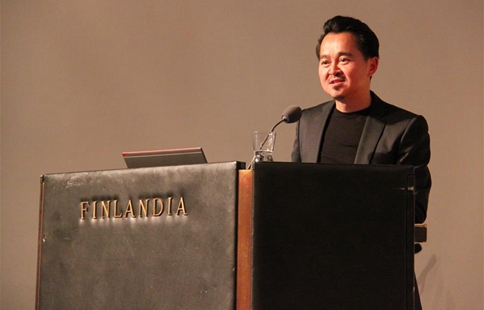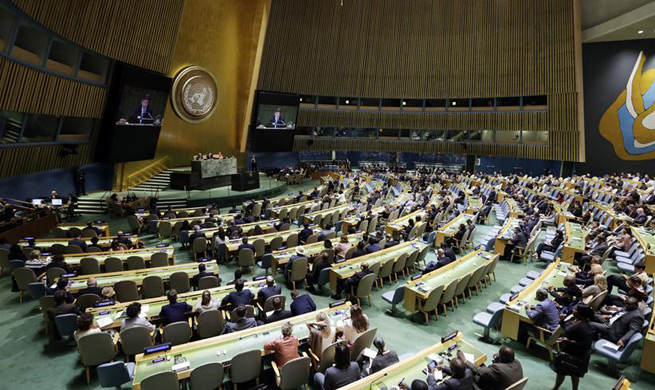by Muhammad Tahir
ISLAMABAD, Sept. 13 (Xinhua) -- The United States has been involved in its longest war in Afghanistan that started weeks after Sept. 11, 2001.
The U.S. toppled the Taliban government to punish the regime for hosting the Federal Bureau of Investigation's most wanted man, Osama bin Laden, who was killed in May 2011.
Since then, most of the remnants of al-Qaida have allegedly shifted to Arab countries but the United States and NATO allies are still fighting the Taliban under the pretext of ensuring security in Afghanistan. However, it is widely believed by experts that their military campaign over the past 17 years has failed and the war has spread from the south and east to the north, raising concerns among other countries in the region.
Pakistani Foreign Minister Khawaja Asif and his Iranian counterpart Mohammad Javad Zarif on Monday agreed that "there is no military solution to the conflict in Afghanistan and a politically negotiated settlement is imperative for lasting peace in Afghanistan."
The two foreign ministers in a meeting in Tehran underscored the fact that the regional countries which have vital stakes in stability in Afghanistan should play a more proactive role in the peace efforts, an Afghan Foreign Ministry statement said.
U.S. President Donald Trump's strategy for Afghanistan announced in late July is widely seen as a continuation of the policies of his predecessors Barack Obama and George W. Bush. Former Afghan President Hamid Karzai publicly condemned Trump's approach for having no plan to press for a peaceful solution.
The Afghan government, however, backed the new U.S. plan and insisted Afghanistan still needs foreign support.
Shortly after President Trump announced his new strategy, the U.S. media reported that 4,000 additional troops would be deployed to assist the Afghan forces, mostly in training. The Pentagon acknowledged in August for the first time that the U.S. has deployed about 11,000 troops in Afghanistan. U.S. officials had previously stated that 8,400 troops were part of NATO's 15,000 troops comprising the Resolute Support mission.
The surge in troop numbers is a strong indication that the United States still wants to show its military commitment to defeating the Taliban and the Islamic State (IS).
However, foreign affairs and regional experts disagree with the approach and insist that the United States should work towards negotiations with the Taliban.
Former Pakistani ambassador Ayaz Wazir said the United States has achieved nothing despite spending billions of dollars and losing the lives of numerous security personnel.
"I think the U.S. efforts in Afghanistan today are the same as where they were in 2001. The situation has not moved forward even an inch," Wazir told Xinhua on Monday.
Wazir, who has served as director general of the Afghan Desk at the Ministry of Foreign Affairs in Islamabad, argued that the United States should join hands with the regional countries to promote reconciliation in the war-ravage country.
When asked about his views on a solution to the Afghan problem, the former diplomat said negotiations with the Taliban is the only option to end the war.
"I strongly believe that the Quadrilateral Coordination Group (QCG) comprising Afghanistan, China, Pakistan and the U.S. is the best forum to work towards political dialogue. But there could be another regional initiative if stakeholders are in agreement," he said.
The QCG, which was launched in December 2015 on the sidelines of the Heart of Asia - Istanbul Process, in Islamabad, has been mostly dysfunctional since an American drone killed Afghan Taliban chief Mullah Akhtar Mansour in May last year.
Mansour was killed just three days after the last meeting of the QCG was held in Islamabad on May 18, and no meeting has been held since then.
A senior Afghan journalist Najam Borhani believes that there has been some progress in terms of infrastructural development and the establishment of a political and education system in Afghanistan, and the country has assumed a political role in the region, but Afghanistan still faces the "worst security situation," he said.
"The Taliban have expanded their insurgency campaign and the country now also faces the challenge from the Islamic State. The U.S. is mistaken if it thinks it can win the war with the same strategy. The U.S. military is also committing mistakes in its air strikes, which are killing many civilians," Borhani told Xinhua on Monday.
He said the United States should either hold direct talks with the Taliban or stand with the government of President Ashraf Ghani to work for reconciliation with the Taliban insurgents and also involve regional countries in the process.

















